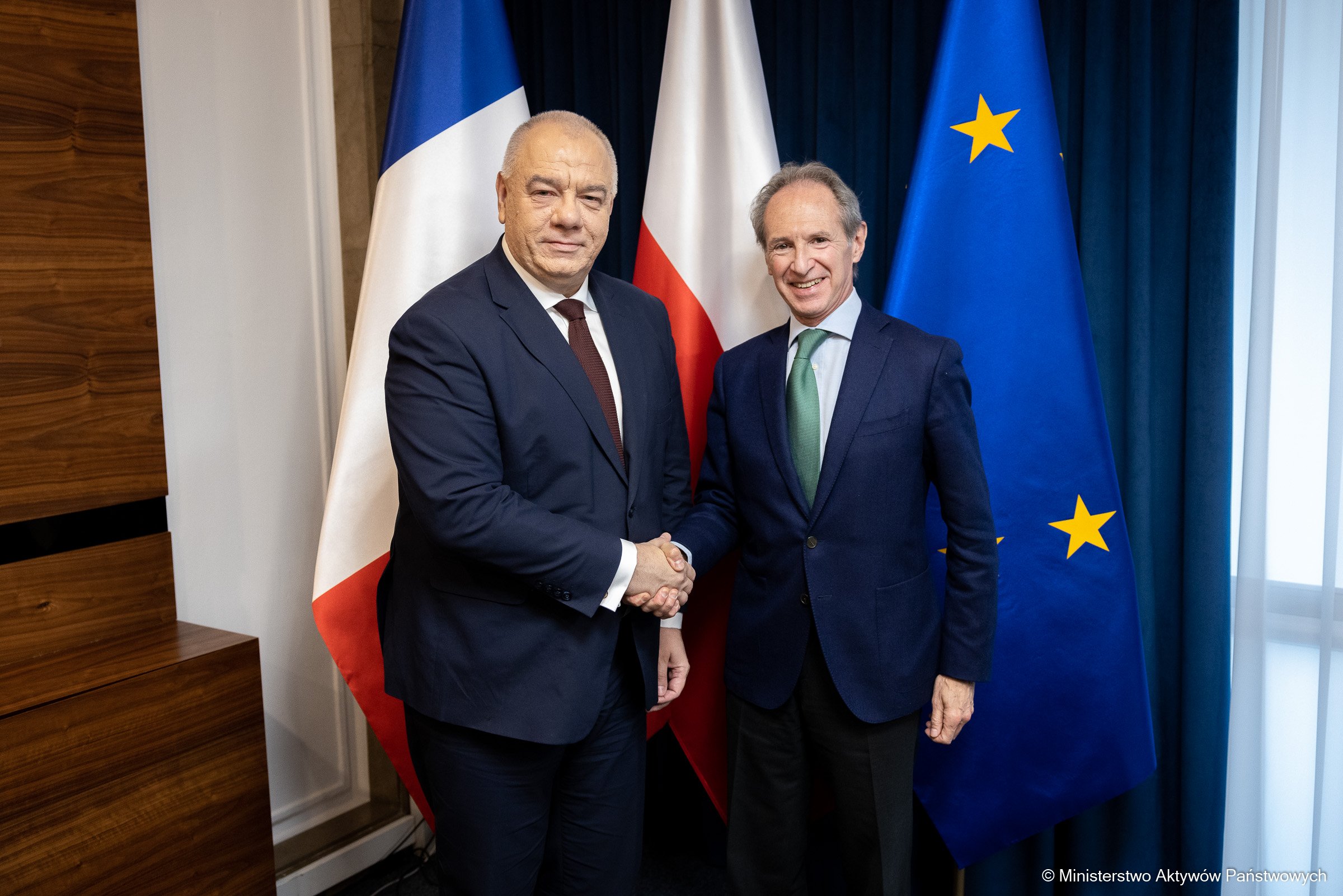– Mr vice prime minister Jacek Sasin and its colleagues I met last week, told me very clearly that the French offer is seriously taken into consideration for the second site of the Polish Nuclear Programme – states High Representative of France for the Civil Nuclear Cooperation with Poland Philippe Crouzet, in an interview for BiznesAlert.pl.
BiznesAlert.pl: What was the purpose of your February visit in Poland?
Philippe Crouzet: The aim of my visit last week to Warsaw two weeks ago was to meet with government authorities and confirm the support of the French government to EDF’s offer in the frame of the Polish Nuclear Power Programme (PPEJ).
Are there any chances of using EDF technology in Polish Nuclear Programme?
EDF, with the support of the French Government, proposes an integrated offer for the Polish nuclear programme. It means that EDF offer includes not only the technology, ie 100% European EPR technology, but as well the engineering, the supply of components, the building and the commissioning of the reactors as well as many other support services . Only EDF as an integrated nuclear operator, and a leading designer and manufacturer of equipment, can make such an offer.
With such an integrated offer, EDF can enable the Polish Government to accelerate the implementation of the Polish nuclear programme, increase its scale and achieve its climate and energy sovereignty objectives.
It should be emphasized that EDF has designed, built, and is operating almost half of the nuclear capacity in Europe and is the sole player currently building nuclear reactors in Europe, in France and the UK. In addition, it will benefit from the confirmed new build nuclear program in France and a pipeline of projects in Europe. Poland and its supply chain could leverage that perspective, which is unique to the EPR technology, for its own program.
We do think that France, being the only potential supplier of large size reactors committed to investing in its own technology for its own needs, is the best long-term partner for the Polish Nuclear Programme.
That is why, I guess, Mr vice prime minister Jacek Sasin and its colleagues I met last week, told me very clearly that the French offer is seriously taken into consideration for the second site of the Polish Nuclear Programme.
What are the prospects for other French companies, especially from the nuclear fuel industry?
It should be noted that the French industry (Orano, Framatome) masters each stage of the entire nuclear fuel cycle, be it open or closed, from the mines to the nuclear fuel recycling. The French approach is based on the security of fuel supply , via diversification, as well as on fully European industrial capabilities.
Such an approach is fully consistent with the target of European energy sovereignty, which we share with Poland. Poland can also benefit from this approach, in the frame of the French offer for a cooperation to implementation of the PPEJ programme.
What is your assessment of European dependence on Russian nuclear fuel and what to do about it?
In order to ensure the security of fuel supply for its nuclear power plants, EDF maximises the diversification of its geographical sources and suppliers. In concrete terms, this means that France is not dependent on any site, any company or any country to ensure the security of its fuel supply. We do not provide more details but we do follow of course the policies decide by the Euratom agency which supervises the European supply of nuclear materials.
Regarding Russian nuclear fuel , the countries equipped with Russian technology reactors are still dependent on Russian fuel. We think that it is possible to reduce and even cancel that dependence, but that it will take a few years. Both French companies Framatome and Orano have already signed contracts for delivering nuclear fuel to Finland, the Czech Republic and Slovakia, in substitution to Russian fuel for their VVER reactors. It is the path to follow, but again, it will take time.
As a reminder, it is not only European countries which are partly relying on Russian materials. Americans and Asians are too but, in order to see it, one must have a closer look at the data, as there is no agency to centralize these data.
Interview by Wojciech Jakóbik









